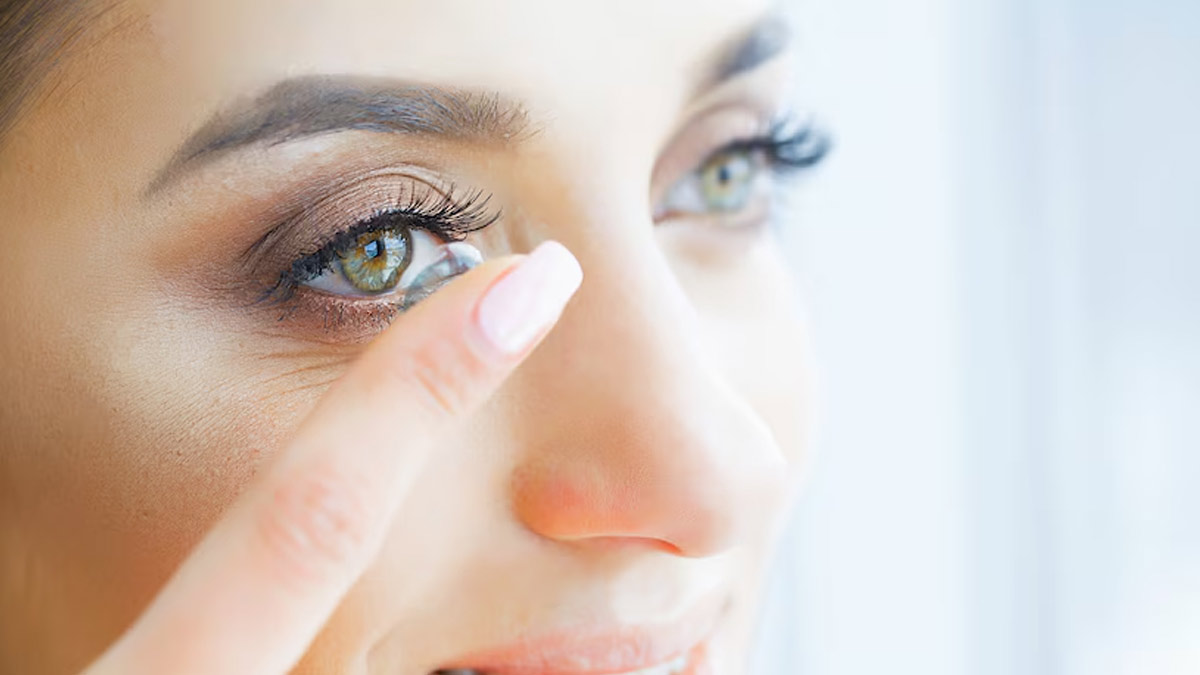
Wearing contact lenses is a convenient way to correct vision without the hassle of glasses, but it's not without its own set of risks—especially when it comes to water exposure. While it may seem harmless to step into the shower with your lenses on, this common habit can pose serious threats to your eye health. From harmful infections to potential vision loss, showering with contact lenses can expose your eyes to a range of dangers.
Table of Content:-
To understand the dangers of wearing contact lenses while showering and how it can affect your eyes, OnlyMyHealth team interacted with Dr Sayali Sane Tamhankar, Cornea and Lasik Surgeon, Dr Agarwals Eye Hospital, Aundh, Pune.
Dr Sayali Tamhankar said, "Showering with contact lenses on can pose several risks to your eye health due to exposure to water, which can introduce harmful bacteria and microorganisms."
1. Risk of Infection (Acanthamoeba Keratitis)
One of the most alarming risks of showering with contact lenses is the potential for severe eye infections, such as Acanthamoeba Keratitis. Dr Tamhankar explains, “Water, including tap water, can carry microorganisms like Acanthamoeba, a parasite that can cause severe eye infections. When contact lenses are exposed to water, they can trap these organisms against the eye, increasing the risk of infections, which can lead to vision impairment or even blindness in severe cases.” This infection is rare but highly painful and difficult to treat, often requiring long-term medication or surgery.
2. Lens Contamination
Contact lenses are designed to stay hydrated by the eye's natural tear film, but exposure to water can disrupt this balance. “Water can cause your contact lenses to swell or change shape, making them uncomfortable to wear and possibly damaging the cornea,” Dr Tamhankar notes. Additionally, contaminants in water can adhere to the lenses, causing irritation, infections, or even allergic reactions. The contaminated lenses can become breeding grounds for bacteria, leading to conditions like conjunctivitis or other bacterial infections.
Also read: Glasses Or Lenses: Which Is Better For Your Eyesight?

3. Discomfort and Dryness
Water can wash away the natural tear film of your eyes, leading to dryness and discomfort. Dr Tamhankar mentions, “Exposure to water can wash away the natural tear film of the eye, leading to dryness and discomfort. This can make your lenses feel sticky or difficult to remove, increasing the chances of causing scratches on the cornea.” Dry eyes can also make contact lenses feel gritty or cause them to stick to the eye, raising the risk of corneal abrasions when removing them.
4. Risk of Lens Loss
Showering with lenses can also increase the likelihood of losing them. “Water can cause the lenses to dislodge or move out of place, leading to a higher risk of losing the contact lenses in the shower,” warns Dr Tamhankar. The absorption of water can alter the shape of the lens, making them more difficult to handle and properly position on the eye. Dislodged lenses not only cause discomfort but can also expose your eyes to further contamination.
5. Corneal Ulcers
Persistent exposure to harmful bacteria found in water while wearing contacts can lead to corneal ulcers, a serious eye condition. Dr Tamhankar highlights, “Corneal ulcers are painful and can severely impact vision if not treated immediately. They are a direct result of harmful bacteria penetrating the cornea, often due to poor contact lens hygiene and water exposure.” Immediate medical attention is necessary to prevent permanent vision damage.
Also read: What Happens When You Wear Contact Lenses For A Long Time?

Precautionary Measures
To maintain your eye health and prevent these serious complications, Dr Tamhankar recommends the following precautions:
- Always remove your contact lenses before sleeping, showering, or swimming. Water exposure should be avoided to reduce the risk of infections.
- Use daily disposable lenses if you expect to be in contact with water regularly. This minimizes the chance of contamination.
- In case water accidentally gets into your eyes while wearing lenses, clean and disinfect them thoroughly or replace them with a new pair. Quick action can prevent potential eye damage.
Taking these steps seriously can help safeguard your eyes and ensure that your contact lens-wearing experience remains comfortable and safe. Avoiding contact with water is one simple, yet essential, step to maintaining your eye health.
Also watch this video
How we keep this article up to date:
We work with experts and keep a close eye on the latest in health and wellness. Whenever there is a new research or helpful information, we update our articles with accurate and useful advice.
Current Version
